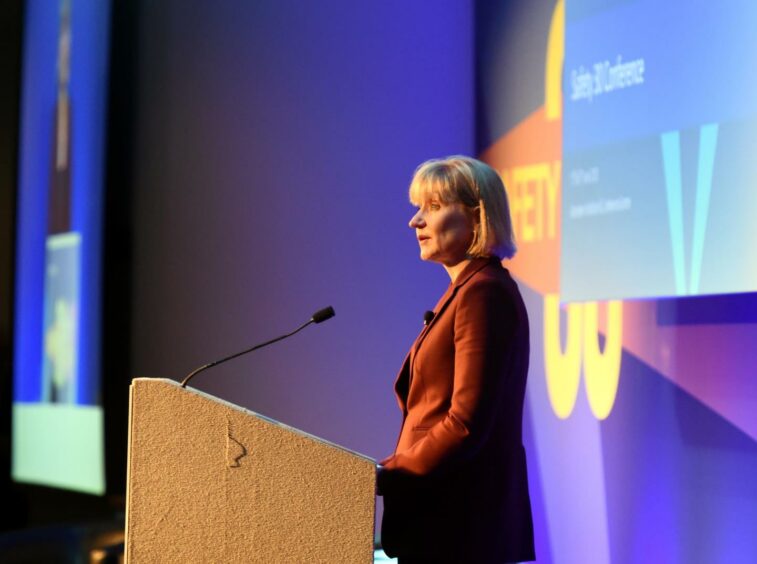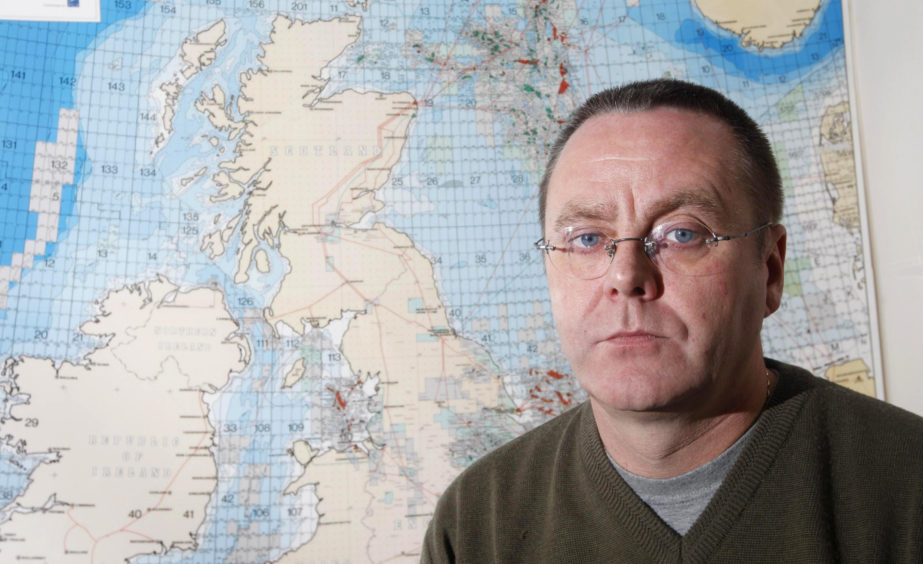
The head of the North Sea oil trade body came under fire at a special COP26 BBC Debate night on Tuesday, hitting back at accusations of “greenwashing”.
Deirdre Michie was on the panel alongside Lord Deben from the Climate Change Committee, writer and activist George Monbiot, Joseph Sikulu from 350.org and Jake Molloy from the RMT union.
Lord Deben said the climate crisis is an “existential issue” and said that new fossil fuel developments must be challenged.
“The delayers are the deniers. That’s why we’ve really got to be tough and we’ve got to ask questions we’ve never asked before.
“You can’t build a new coal mine in Cumbria, there’s no possibility of doing that and still be taken seriously.
“We’ve got to challenge people on that, and we’ve got to challenge further oil and gas exploration off the coast of Scotland. If we don’t challenge those fundamental things then we won’t get there.”
“We are changing… We are really driving the new energies that we are going to need.”
“What a concatonation of green wash that is.”
Deirdre Michie of @OGUKEnergy clashes with @GeorgeMonbiot over the continued use of gas and oil. #bbcdn pic.twitter.com/NFsUxDnZSU
— BBC Debate Night (@bbcdebatenight) November 2, 2021
In reply, Ms Michie outlined industry’s net zero goals and its target to reduce emissions by 50% by 2030, 90% by 2040 and net zero by 2050.
However environmental activist George Monbiot described Ms Michie’s words as a “concatonation of green wash”, met with huge applause from the audience.
He said: “The only meaningful reduction you can make is to leave that oil and gas in the ground. That is the fundamental task. In fact, all the talks in Glasgow are nonsense unless we’re talking about leaving fossil fuels in the ground. That is the simple thing that we need to do.”
Asked whether she was indeed greenwashing, Ms Michie said the industry would make its case through the action it is taking.
She said: “No I’m not. We are talking about a managed transition. We could make a decision to stop this industry tomorrow and all you would do, to get oil and gas that we need for everyday products, you would still have to be importing that from abroad. From Norway, Qatar, Russia.
“Why would you choose to do that? You would put tens of thousands of people out of work in Scotland overnight.”
She was asked directly about the need to stop new projects like the Cambo oilfield and to end oil and gas altogether, and replied by pointing to the closure of coal mines in Scotland in the 1980s as a “lesson”.
“If we’re agreed about that end date then we should be working together, constructively, collaboratively, to find how we can come up with the solutions to get there, taking communities with us, protecting jobs and ensuring our own security of supply. That is not greenwashing.
“We have the facts, we have the data, and we will demonstrate by our action, not by ‘blah, blah, blah’, by action, action, action, what we are doing.”
Joseph Sikulu from 350.org travelled from Tonga to visit COP26 in Glasgow, whose home was submerged due to global warming in 2014.
He said that growing frequency and danger of typhoons in the South Pacific means there is no choice but to take action.
“I think optimism for us is not a choice, we’re here because we have to be, have to come to this table in order to ensure the survival of our people and survival of our islands.”
Scottish Finance Secretary Kate Forbes was also on the panel, who said there’s “an element of truth” to a point from another panelist around a potential lack of political will for the transition.
But, she added that hope is alive and it will “boil down to whether or not there is meaningful action over the next two weeks”.
Jake Molloy of the RMT Union said there is a “massive job to be done”, but he “can’t accept the ideology that we just shut the whole lot down and live in tents, because that’s essentially what you’re saying”.
He added: “We’ve got to have hope but we can only have hope if we’ve got political will, bwcuase political will is all that’s going to change the situation for us. I hear Deirdre and I agree with most of what she is saying because the political will at this minute in time just isn’t there to transition quickly enough, to transfer jobs over rapidly enough and bring about cessation of oil and gas in the UK.
“But Deirdre is also right in that we are going to need oil and gas for some considerable time to do a managed transition. 80% of the public in the UK heat their homes with gas, if we turn off the gas tonight we’ll be freezing more pensioners this year than we have in last 30 years and we’ve got to do something about that as well. We’ve got to have a transition that carries with it an economic change and a social justice change.”

